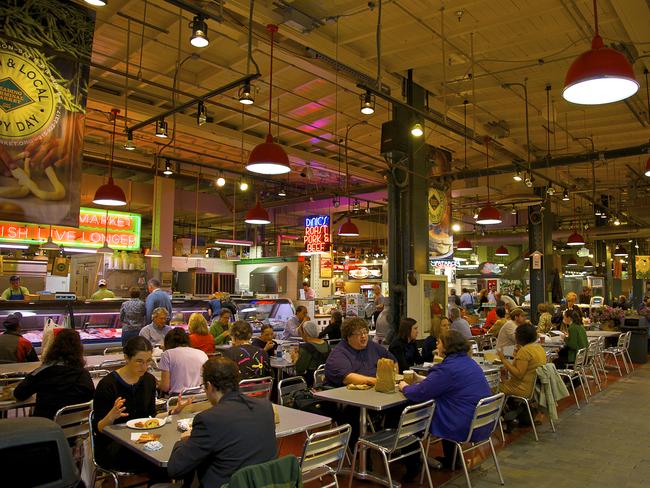The real reasons we eat junk food
WE KNOW we’re better off avoiding that packet of chips or the lolly jar, so why is it so hard to stop? Turns out it takes more than willpower.

YOU may love a chocolate biscuit with a cup of tea, a handful of lollies after lunch or a sneaky packet of chips with a glass of wine after work.
Whatever your choice of snack food is, chances are you know you would be better off without the extra fat, sugars and calories. Yet, in Australia we eat a lot of junk or “discretionary foods”. Now, new research from Benjamin Schuz from the University of Tasmania has looked at why we find it hard to stop eating.
Published in the eating behaviour journal Appetite, the study investigated the factors that specifically influenced the eating and drinking habits of 50 adults. Their moods, social behaviour and eating prompts were tracked across a 10 day period.
When it came to both eating meals and snacks, the results were clear.
1. FOOD AVAILABILITY
When food is available, we will eat it. Forget willpower — the mere presence of food means we are highly likely to eat it.
This means if you buy the food, even if it is only for guests or for special occasions, or have a biscuit tin or lolly jar or fundraising chocolate box at work, you are significantly more likely to eat whether you are hungry or not.
If you really don’t want to eat it, do not buy it. Keep food out of sight in any environment you spend a lot of time in.
2. SEEING OTHERS EAT

It appears that seeing others eat, whether you are hungry or not, immediately gives us permission to eat too. This behaviour is commonly observed at food courts and airports when a significant number of people are eating at any point in time, whether it is a meal time or not. This finding confirms that of the Framingham Heart Study, which in a 30 year analysis found that we basically become like the people we spend our time with. When it comes to overeating and weight gain, this finding suggests that the more those around us eat, the more we will eat and as such the healthier the environments in which we spend our time, the healthier we are likely to be. For most of us this means we need both our homes and our workplaces to be as healthy as possible if we are to control our weight.
3. NEGATIVE EMOTIONS
Although not as powerful as having food available, or seeing others eat, indeed feeling sad, depressed or just down is enough to drive eating behaviour, particularly when it comes to snacking. For those of us who eat to self soothe, keep in mind that this is often learnt behaviour, taught to us as children or via media channels when we are encouraged us to eat certain foods to feel better; or to buy a packet of Tim Tams when we are watching TV alone at home. As such, the only way to control emotional overeating is to identify when we are feeling sad or down and learn to self soothe in other ways, or if you must eat, choose portion controlled treats.
4. KEEPING BUSY
Not surprisingly one key factor found to help control food intake was the simple act of keeping busy.
Engaging in activities other than eating was a key factor that resulted in both fewer meals and snacks being consumed. This is also likely to somewhat explain why we eat more at night when we are sitting at home, perhaps not overly engaged. It also suggests that keeping busy, without tempting food stimulus is a key factor in managing our food intake on a daily basis.
5. BEING WITH FRIENDS AND FAMILY
In contrast to the observation that saw study participants eat more when others were eating, in this study being around friends and family actually significantly decreased the consumption of snacks.
This finding suggests again that simply being engaged with others appears enough to limit our intake of extra foods and control our eating when we are enjoying meals. For this reason seeking out the company of others when we are due for a snack or a meal appears to be another simple way to help control the amount of food we consume.




